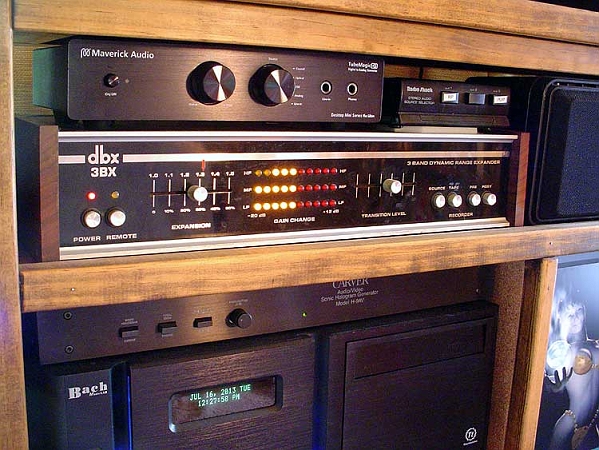jdmccall
Super Member
Besides the diminished fidelity and overall sound quality that comes with the loudness wars, there is collateral damage in the form of listener's fatigue.
I was listening to a CD copy of The Ozark Mountain Daredevil's first album this morning, then followed that with the Pistol Annie's "Hell On Heels" CD. What a difference! While the Annie's CD did sound good, with strong bass and good clarity, it was so loud I had to reach for the volume...twice. It hurt my ears! By the time it's 30:09 running time was over, my listening session was too.
I can see the advantage of dynamic limiting in noisy environments and for background music; I guess that's what the industry is catering to...but not music lovers / audiophiles. We don't count, I guess. Shame there can't be a reasonable compromise that would be acceptable to all, or as I have long proposed -dynamic limiting in playback, not in recording. It would just need to be in the form of a button. Off or on. Everybody's happy. If only we lived in a perfect world!
I was listening to a CD copy of The Ozark Mountain Daredevil's first album this morning, then followed that with the Pistol Annie's "Hell On Heels" CD. What a difference! While the Annie's CD did sound good, with strong bass and good clarity, it was so loud I had to reach for the volume...twice. It hurt my ears! By the time it's 30:09 running time was over, my listening session was too.
I can see the advantage of dynamic limiting in noisy environments and for background music; I guess that's what the industry is catering to...but not music lovers / audiophiles. We don't count, I guess. Shame there can't be a reasonable compromise that would be acceptable to all, or as I have long proposed -dynamic limiting in playback, not in recording. It would just need to be in the form of a button. Off or on. Everybody's happy. If only we lived in a perfect world!




 stream more old school tunes, Classic Music or Jazz more often .. but I'm all good now. Lossy actually does not sound bad on my rig.
stream more old school tunes, Classic Music or Jazz more often .. but I'm all good now. Lossy actually does not sound bad on my rig. mojo.
mojo.